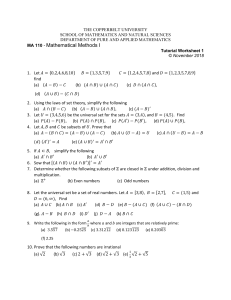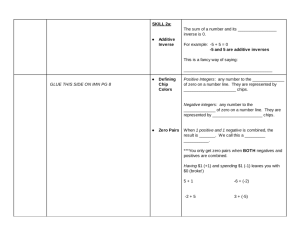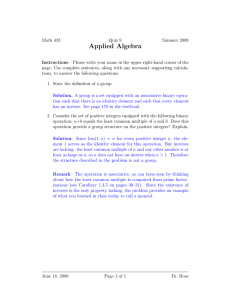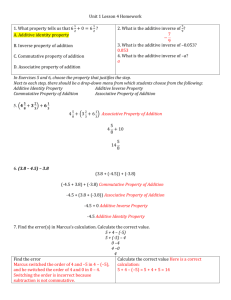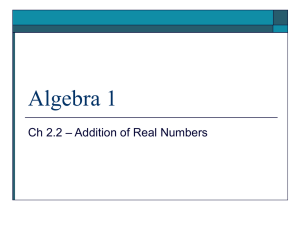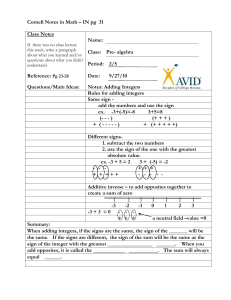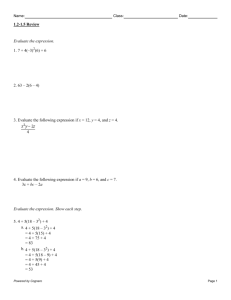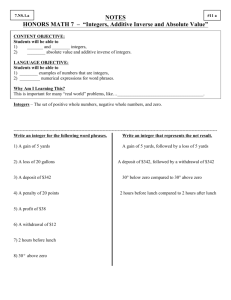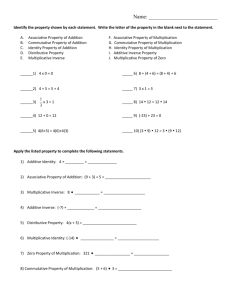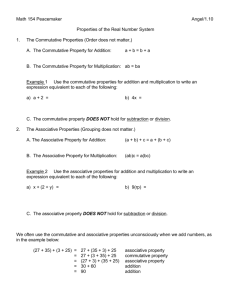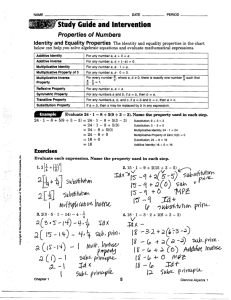Axioms for Integers The set of integers, Z, is a non
advertisement
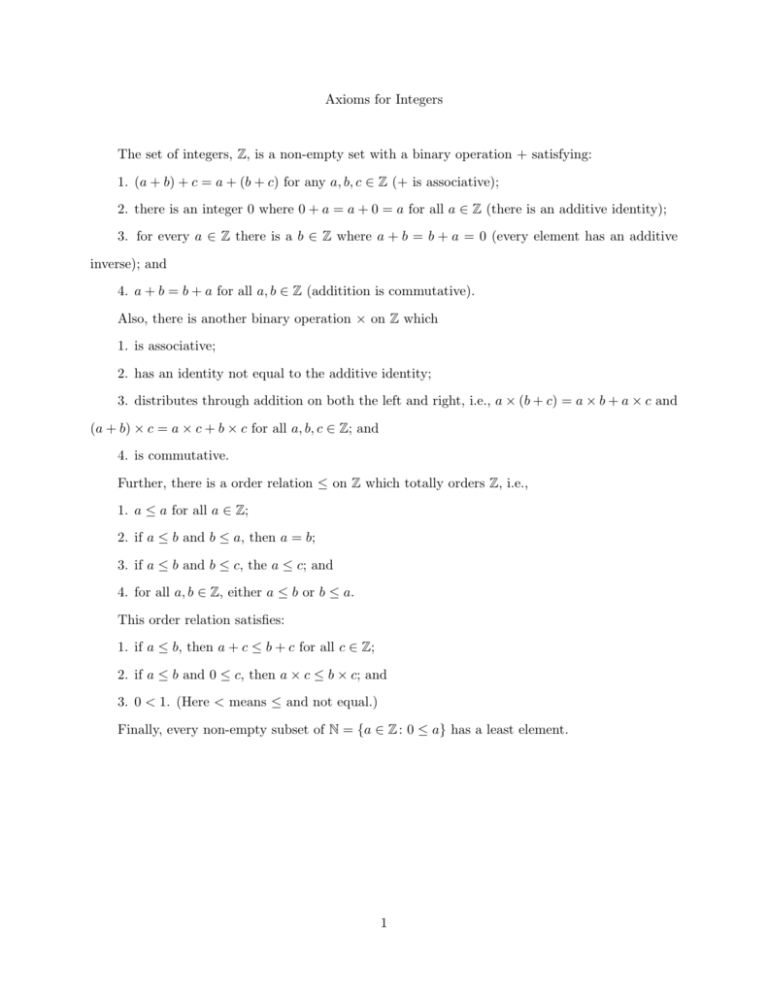
Axioms for Integers
The set of integers, Z, is a non-empty set with a binary operation + satisfying:
1. (a + b) + c = a + (b + c) for any a, b, c ∈ Z (+ is associative);
2. there is an integer 0 where 0 + a = a + 0 = a for all a ∈ Z (there is an additive identity);
3. for every a ∈ Z there is a b ∈ Z where a + b = b + a = 0 (every element has an additive
inverse); and
4. a + b = b + a for all a, b ∈ Z (additition is commutative).
Also, there is another binary operation × on Z which
1. is associative;
2. has an identity not equal to the additive identity;
3. distributes through addition on both the left and right, i.e., a × (b + c) = a × b + a × c and
(a + b) × c = a × c + b × c for all a, b, c ∈ Z; and
4. is commutative.
Further, there is a order relation ≤ on Z which totally orders Z, i.e.,
1. a ≤ a for all a ∈ Z;
2. if a ≤ b and b ≤ a, then a = b;
3. if a ≤ b and b ≤ c, the a ≤ c; and
4. for all a, b ∈ Z, either a ≤ b or b ≤ a.
This order relation satisfies:
1. if a ≤ b, then a + c ≤ b + c for all c ∈ Z;
2. if a ≤ b and 0 ≤ c, then a × c ≤ b × c; and
3. 0 < 1. (Here < means ≤ and not equal.)
Finally, every non-empty subset of N = {a ∈ Z : 0 ≤ a} has a least element.
1

